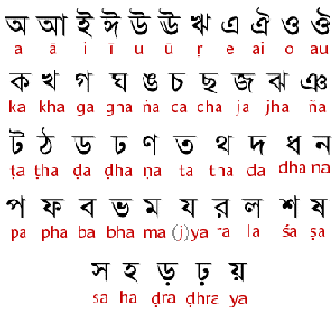


In mid-2018 when I moved in with my boyfriend, I didn’t realize that Bengali would re-enter my life. The intonation, their expressions, the shifting tonalities - I watched them in silence, letting my ears do the note taking. Its mellifluousness showering the entire room in a gentle cadence of its own. Whenever I heard people speak, it felt like they were celebrating the fact that they could speak. At my house, we only ever celebrated weddings this way, for days on end, stretching to a couple of weeks, at times.īengali then to my naïve ears came across as a cacophonous, loud, boisterous, a celebration of the spoken word, of life, and of being the moment. I wanted to know the real reason behind the celebrations, and somehow it seemed to me that their language was a portal to that. Whenever around them, I would try to listen in on their conversations. My parents’ friends would take leave from work, their children skipped school, awash in a peculiar festive mood.Īs much as we were a part of the same religion, we did not celebrate it at such lengths. There were pandals, goddesses, Durga’s idols, fair, food stalls, dance shows, literary readings, all running through this entirety of nine days. Nine days of festivities bookended by the final day marking the victory of light over darkness.īengali tradition celebrated it a bit more grandiosely.

With the exit of summer season, to mark the onset of a pleasant spring season, we would celebrate the Hindu festival of Durga Puja. Even as a kid I could sense a remove in their existence, a kind of an anomaly in the otherwise Hindi-speaking heartland. As a kid, I spent at least two weeks of Durga Puja every year in the company of my parents’ Bengali friends. Apart from the shared colonial past, these two parts of India have also shared a thick Bengali population. I was my parents’ second born in the north Indian town of Kanpur (erstwhile Cawnpore).

My partner M was born and brought up in Kolkata (erstwhile Calcutta) an only child. I, on the other hand, had barely started picking up the language after I moved in with my partner in mid-2018. In my head, I kept comparing myself to the wizard of words, Jhumpa Lahiri, and how she had legitimized her love affair with Italian, writing an entire book in it, giving interviews, going out in the world with so much gravitas about her love for the new tongue. BEFORE BEING EVEN five percent confident in uttering bare Bengali words, I thought they would come out too crude, funny, even gauche from my unpracticed mouth.


 0 kommentar(er)
0 kommentar(er)
